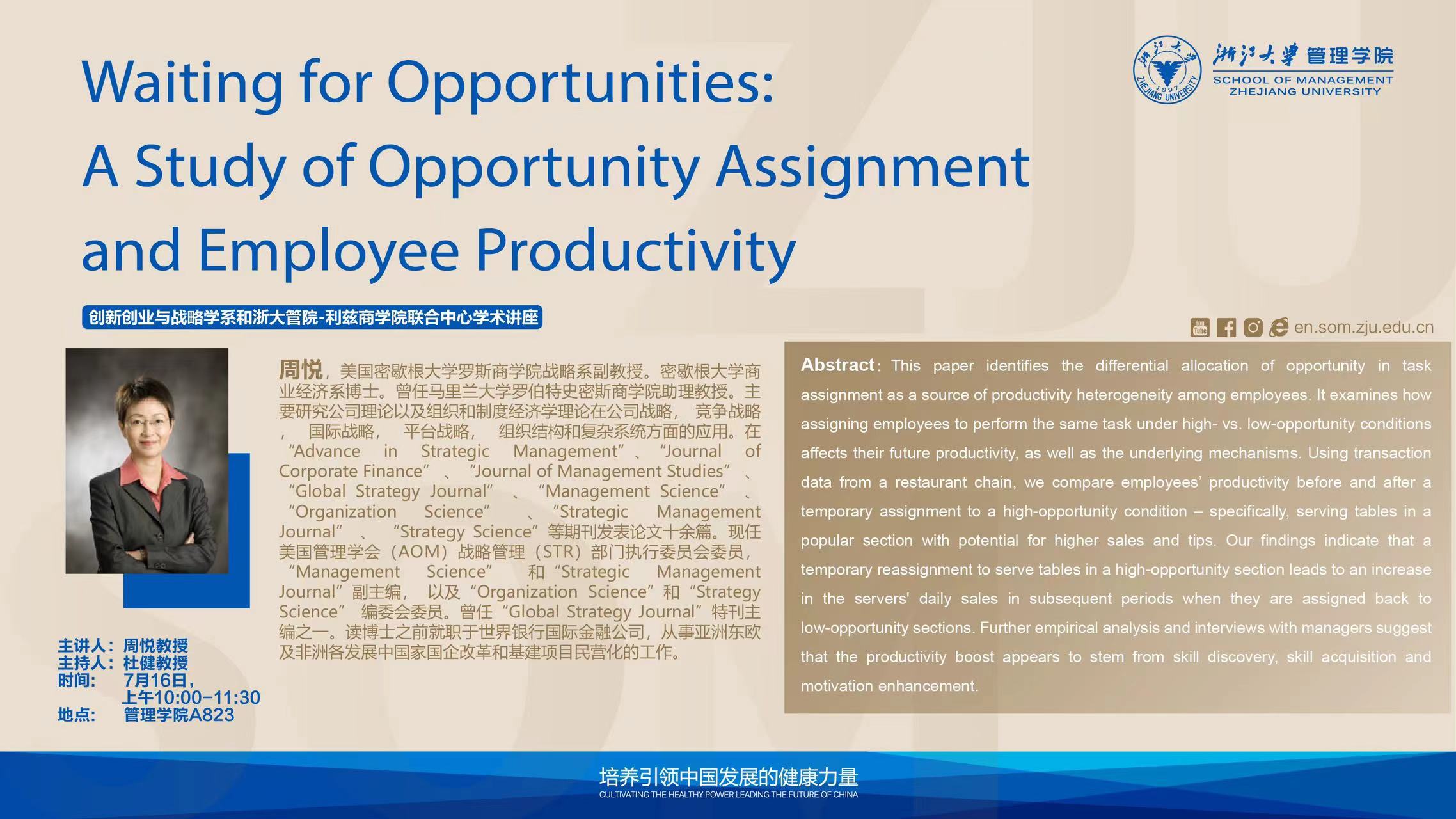Workshop’s Topic: This paper identifies the differential allocation of opportunity in task assignment as a source of productivity heterogeneity among employees. It examines how assigning employees to perform the same task under high- vs. low-opportunity conditions affects their future productivity, as well as the underlying mechanisms. Using transaction data from a restaurant chain, we compare employees’ productivity before and after a temporary assignment to a high-opportunity condition - specifically, serving tables in a popular section with potential for higher sales and tips. Our findings indicate that a temporary reassignment to serve tables in a high-opportunity section leads to an increase in the servers’ daily sales in subsequent periods when they are assigned back to low-opportunity sections. Further empirical analysis and interviews with managers suggest that the productivity boost appears to stem from skill, discovery, skill acquisition and motivation enhancement.
Time and Location: 10:00 AM (GMT+8), Room A823 (School of Management)
Language: Bilingual (Chinese and English)
